Description
Aramo is very old cooperative in the Yirga Chefe (Yirgacheffe) district of Ethiopia’s Gedeo zone, the epicenter of one of the most beloved terroirs in the world. Comprised of extremely small and diversified organic farmers, Aramo is one of the many individual cooperatives that make up the storied Yirgacheffe Coffee Farmers Cooperative Union (YCFCU). Grade 3 naturals from Aramo are soft and creamy with a lightly jammy sweetness and hints of florals
Aramo is a municipality located near the center of the coveted Gedeo Zone—the narrow section of highland plateau dense with savvy farmers and fiercely competitive processors whose coffee is known the world over as “Yirgacheffe”, after the zone’s most famous district, Yirga Chefe. The Gedeo Zone is named for the Gedeo people who are indigenous to this area. As a coffee terroir, Gedeo, or “Yirgacheffe”, has for decades been considered a benchmark for beauty and complexity in arabica coffee. It’s known for being beguilingly ornate and jasmine-like when fully washed, and seductively punchy and sweet when sundried, and hardly requires an introduction.
Tasting Notes: Clean, sweet, and floral with some stronger tea like attributes. Best served in the medium to dark roast levels. Lighter roasting does have higher acidity giving the cup a citric edge and more floral notes, hints of fruit can be found but can contrast with a little grassy/earthy if too light. Hints of a black tea like spice and a soft fruit tone will pop out especially with some setup and as the cup cools. Medium to dark roasts will mellow the brightness considerably turning the cup darker toned and more about the spice notes and chocolaty factor. Smooth and easy drinking in the medium roast range while still maintaining hints of exotic acidity. Dark roasts promote a smoky edged rich semi-sweet chocolaty factor with tea like spice that lingers on the tongue in the aftertaste.
Roasting Notes: Ethiopians are generally between 1st and 2nd crack coffees. Decently too light or dark and one loses the exotic tones and balance. Although mostly in Ethiopia, they roast coffee slowly and very dark, they also tend not to do awesome pour-overs with them. Best balance in this cup was achieved about half way between first and 2nd crack, a nice medium roast, can be
Farms in this area are quintessentially tiny, averaging less than a single hectare per family. Despite the diminutive size, farmland is typically divided between coffee, subsistence crops for the families, and items for the regional markets such as livestock, cabbage, or enset, a fruit-less relative of the banana tree whose pulp is fermented and then toasted as a staple food.
Aramo was first formed in 1968, long before fully washed coffee was even a norm in Ethiopia. The cooperative originally had 287 members; today there are almost 1600, covering 1,300 hectares of local farmland. The coop has 12 year-round management employees and a harvest staff of more than 200 to help with all the daily tasks involved with cherry intake, processing and drying, inventory, finances, record keeping, and security.
Naturals at Aramo begin with rigorous cherry sorting upon delivery from the growers. The best accepted cherry is taken straight to the drying tables to sun-dry, a process that takes an average of 3 weeks to complete. During this time the dehydrating cherry is raked and rotated nearly constantly, as well as continuously hand-sorted to further eliminate inconsistencies or defects.
The Yirgacheffe Union
Aramo is one of the primary cooperatives that together make up the Yirgacheffe Coffee Farmers Cooperative Union (YCFCU). The Union, first established In 2002, has more than 45,000 individual farmer members and 28 different cooperatives across Gedeo Zone, almost all of which are Fair Trade certified. (Gedeo, while tiny compared to neighboring Sidama and Guji zones, is one of Ethiopia’s most densely populated areas after Addis Ababa).
The members of each primary cooperative elect their own executive committee which makes decisions about investments like new equipment and tree maintenance, but also creates plans for member social services, school support, public health, infrastructure, and how to structure payments to the coop members. YCFCU also appoints professional managers for each primary cooperative to oversee harvest and processing procedures, who are accountable to the members and the executive committee.
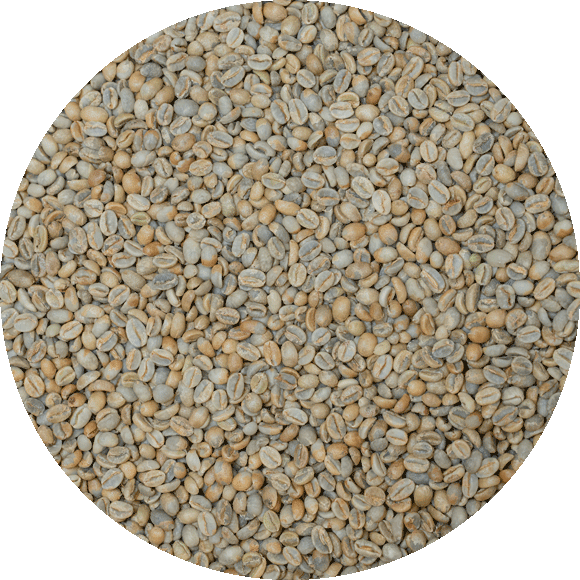

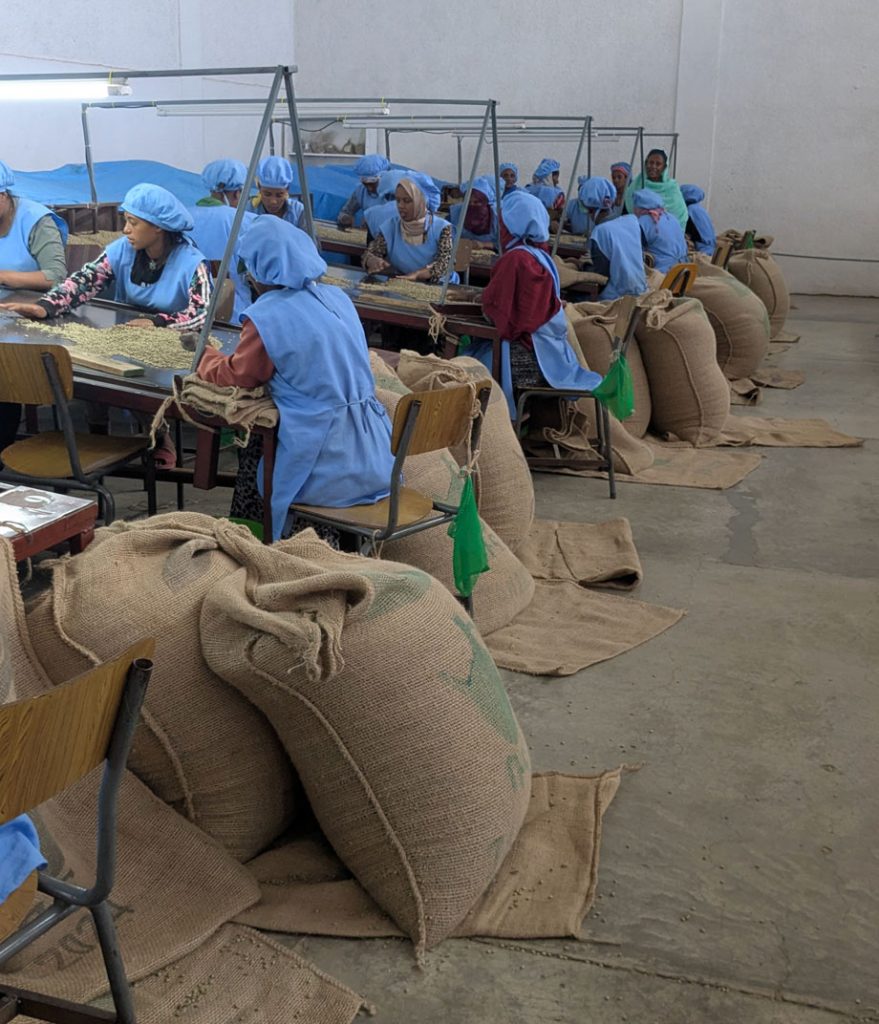
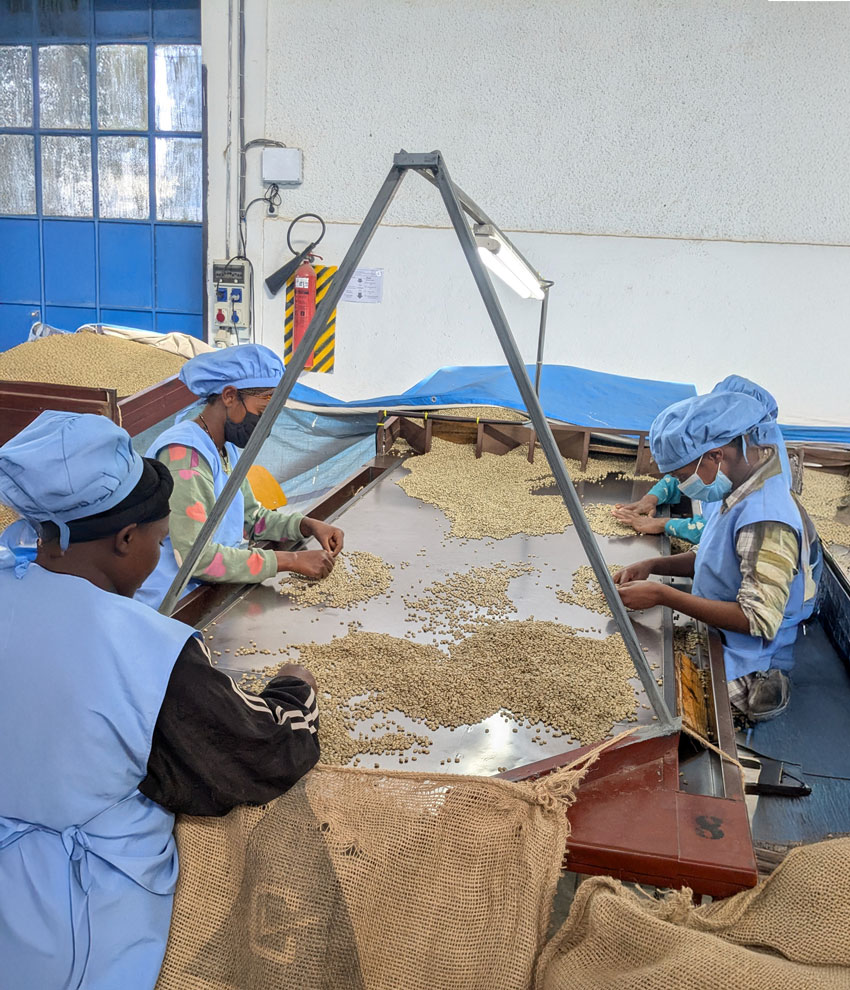
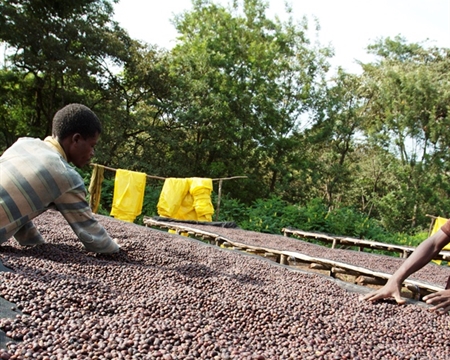
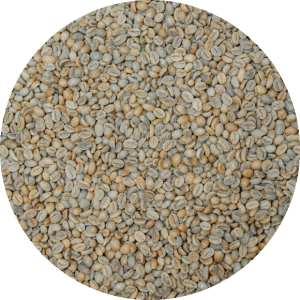
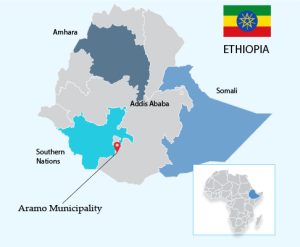
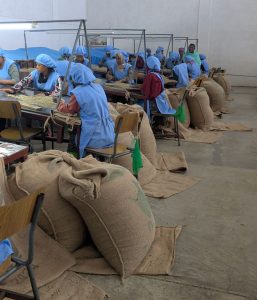
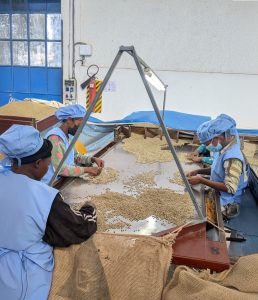
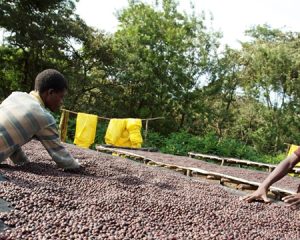
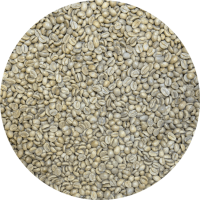
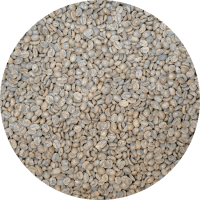



Reviews
There are no reviews yet.